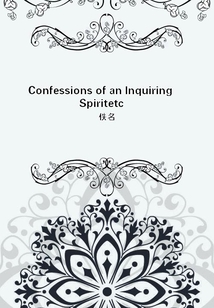最新章節
書友吧第1章
Samuel Taylor Coleridge was born on the 21st of October, 1772, youngest of many children of the Rev. John Coleridge, Vicar of the Parish and Head Master of the Grammar School of Ottery St. Mary, in Devonshire. One of the poet's elder brothers was the grandfather of Lord Chief Justice Coleridge. Coleridge's mother was a notable housewife, as was needful in the mother of ten children, who had three more transmitted to her from her husband's former wife.
Coleridge's father was a kindly and learned man, little sophisticated, and distinguishing himself now and then by comical acts of what is called absence of mind. Charles Buller, afterwards a judge, was one of his boys, and, when her husband's life seemed to be failing, had promised what help he could give to the anxious wife.
When his father died, Samuel Taylor Coleridge was but eight years old, and Charles Buller obtained for him his presentation to Christ's Hospital. Coleridge's mind delighted in far wandering over the fields of thought; from a boy he took intense delight in dreamy speculation on the mysteries that lie around the life of man. From a boy also he proved his subtleties of thought through what Charles Lamb called the "deep and sweet intonations" of such speech as could come only from a poet.
From the Charterhouse, Coleridge went to Jesus College, Cambridge, where he soon won a gold medal for a Greek ode on the Slave Trade, but through indolence he slipped into a hundred pounds of debt. The stir of the French Revolution was then quickening young minds into bold freedom of speculation, resentment against tyranny of custom, and yearning for a higher life in this world. Old opinions that familiarity had made to the multitude conventional were for that reason distrusted and discarded. Coleridge no longer held his religious faith in the form taught by his father. He could not sign the Thirty-nine Articles, and felt his career closed at the University. His debt also pressed upon him heavily. After a long vacation with a burdened mind, in which one pleasant day of picnic gave occasion to his "Songs of the Pixies," Coleridge went back to Cambridge. But soon afterwards he threw all up in despair. He resolved to become lost to his friends, and find some place where he could earn in obscurity bare daily bread. He came to London, and then enlisted as a private in the 15th Light Dragoons. After four months he was discovered, his discharge was obtained, and he went back to Cambridge.
But he had no career before him there, for his religious opinions then excluded belief in the doctrine of the Trinity, and the Universities were not then open to Dissenters. A visit to Oxford brought him into relation with Robert Southey and fellow-students of Southey's who were also touched with revolutionary ardour. Coleridge joined with them in the resolve to leave the Old World and create a better in the New, as founders of a Pantisocracy--an all-equal government--on the banks of the Susquehannah. They would need wives, and Southey knew of three good liberal-minded sisters at Bristol, one of them designed for himself; her two sisters he recommended for as far as they would go. The chief promoters of the Pantisocracy removed to Bristol, and one of the three sisters, Sarah Fricker, was married by Coleridge; Southey marrying another, Edith; while another young Oxford enthusiast married the remaining Miss Fricker; and so they made three pairs of future patriarchs and matriarchs.


